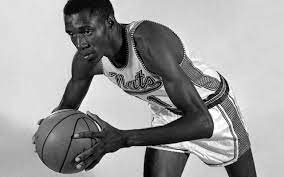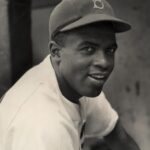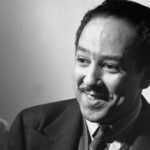Pioneering the Hardwood: Earl Francis Lloyd, the First Black Man in the NBA
Early Life and Basketball Journey: Earl Francis Lloyd was born on April 3, 1928, in Alexandria, Virginia. His journey to becoming a trailblazer in the world of professional basketball began in the racially segregated environment of the mid-20th century. Lloyd honed his basketball skills at Parker-Gray High School, where he showcased exceptional talent and passion for the game.
College Career and Breaking Barriers: Lloyd’s outstanding basketball skills earned him a scholarship to West Virginia State University. He played college basketball there, becoming a standout player and helping the team achieve success. In 1950, Lloyd broke the racial barrier in professional basketball by becoming the first Black man to play in the National Basketball Association (NBA).
Historic NBA Debut: Earl Lloyd made his NBA debut on October 31, 1950, with the Washington Capitols, just one day before fellow Black players Chuck Cooper and Nat “Sweetwater” Clifton. This historic moment marked a significant step toward racial integration in professional sports, challenging the segregation norms of the time.
Contributions to Black History: Lloyd’s entry into the NBA was a groundbreaking achievement with broader implications for Black history. By breaking the color barrier in professional basketball, he paved the way for future generations of Black athletes to excel in the NBA. Lloyd’s resilience and skill demonstrated that talent knows no racial boundaries, challenging stereotypes and prejudices.
NBA Career and Legacy: Throughout his NBA career, which spanned from 1950 to 1960, Lloyd played for various teams, including the Syracuse Nationals and the Detroit Pistons. His contributions to the game extended beyond his playing days, as he later transitioned to coaching and front-office roles. Earl Lloyd’s legacy remains ingrained in the NBA’s history, reminding everyone of his pioneering role in fostering diversity within the league.
Social Impact and Community Involvement: Beyond his on-court achievements, Lloyd was actively involved in community and social initiatives. He used his platform to advocate for equality and justice, both within the realm of professional sports and society at large. Lloyd’s commitment to social causes mirrored his impact on and off the basketball court.
Recognition and Honors: In recognition of his groundbreaking contributions, Earl Lloyd received numerous accolades. In 2003, he was inducted into the Naismith Memorial Basketball Hall of Fame, solidifying his place in basketball history. His jersey number 10 was also retired by the Detroit Pistons.
Conclusion: Earl Francis Lloyd’s journey from the segregated courts of his youth to the historic integration of the NBA represents a monumental chapter in both sports history and the broader struggle for racial equality. As the first Black man in the NBA, Lloyd’s legacy endures as a symbol of resilience, breaking barriers, and advancing the cause of civil rights. His impact on the basketball world and society at large resonates as a testament to the transformative power of courage, talent, and the pursuit of equality.





